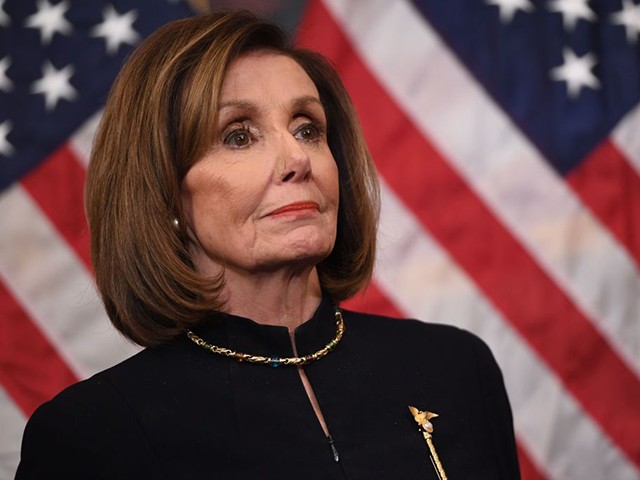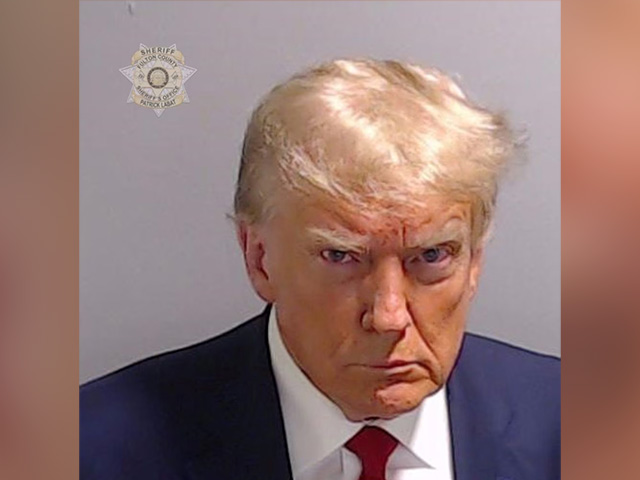
House Speaker Kevin McCarthy made clear to Breitbart News on Friday that if House Republicans move forward with an impeachment inquiry into Democrat President Joe Biden, the move would come not as an announcement from him or anyone else, but from a formal vote on the floor of the House.
“To open an impeachment inquiry is a serious matter, and House Republicans would not take it lightly or use it for political purposes. The American people deserve to be heard on this matter through their elected representatives,” McCarthy told Breitbart News. “That’s why, if we move forward with an impeachment inquiry, it would occur through a vote on the floor of the People’s House and not through a declaration by one person.”
Doing so would require a majority—at least 218 votes, assuming the House is at full attendance for such a vote—of members of the House to vote for such a move. While opening a formal impeachment inquiry is not a vote to impeach the president, it is a massive escalation by the lower chamber of Congress towards doing so—and it would also provide the House with extraordinary new investigative and law enforcement powers in terms of compelling testimony, enforcing subpoenas, and digging into Biden’s behavior and the culture of corruption surrounding the president.
McCarthy’s statement here is significant in multiple respects. First, the speaker has been taking steps towards building up to an impeachment inquiry in the fall—previewing such a move before and during the August recess in interviews and public remarks. Continued revelations through a variety of avenues—from the House Oversight Committee and House Judiciary Committee to federal courts, including, especially, the collapsed plea agreement between the president’s son, Hunter Biden, and the Justice Department and more—have also increased the likelihood of the House moving in such a direction. This latest statement from the speaker makes clear that an impeachment inquiry is on his mind and that the House is seriously considering such a move.
Secondly, and perhaps equally importantly, the speaker is making clear the process by which the House would pursue such an escalation—and also differentiating the possible House GOP impeachment inquiry from the House Democrats’ first such impeachment inquiry into then-President Donald Trump in 2019. For the opening of that one, then-Speaker Nancy Pelosi simply announced by proclamation that the House was conducting an impeachment inquiry into Trump—and only weeks later did the House formally vote on such a development. McCarthy is making clear that is not how the House GOP would operate, thereby lending more credence and credibility to any eventual such move. The Democrats’ first impeachment of Trump was mired in political controversy and eventually fell down on partisan lines leading to Trump’s acquittal. Trump was impeached a second time later at the end of his presidency and was also acquitted on that one by the Senate, but that second impeachment had bipartisan support, with ten House Republicans voting for it and several Senate Republicans joining them.

US Speaker of the House Nancy Pelosi holds a press conference after the House passed Resolution 755, Articles of Impeachment Against President Donald J. Trump, at the US Capitol in Washington, DC, on December 18, 2019 (SAUL LOEB/AFP via Getty Images).
That is not to say that even doing everything properly and correctly would mean that an eventual possible impeachment of Biden would cross party lines; it probably would not, as Democrats are much more likely to be partisan animals and, regardless of the facts, stick with their guy. However, doing it properly and orderly allows McCarthy and House Republicans the ability to dismiss Democrat nonsense criticisms from the outset—and structure it in such a way that maximizes exposure politically for Biden heading into an election year.
If the House were to move forward with opening an impeachment inquiry in September or October, for what it is worth, the investigation would likely take months before any vote on Articles of Impeachment against Biden—if such a vote ever comes. That could mean an impeachment and a trial for Biden in the Senate—Senate rules require a trial quickly after an impeachment is delivered from the House—could come right before the November 2024 election in the summer or fall of 2024.
Establishment media outlets, meanwhile, are currently obsessed with Trump’s various legal processes and the timing that those could play out under in 2024 in and around key moments throughout the election. Surely, Trump’s various legal woes are important and should command a level of interest, especially if he hangs on to his essentially insurmountable lead and wins the GOP nomination for president again.
But if this whole impeachment inquiry and eventual possible impeachment process play out as it could with Biden, it’s possible that the bigger story in 2024 will be the corruption of the sitting president, Democrat Joe Biden, and the efforts of Congress to hold Biden accountable up to and including a trial in the United States Senate. Whether or not Biden is eventually convicted in the Democrat-controlled Senate on any Articles of Impeachment the House may pass after an impeachment inquiry may also be irrelevant because the real jury Biden would face would be the American voting public at the polls in November 2024—if it all plays out like that.







